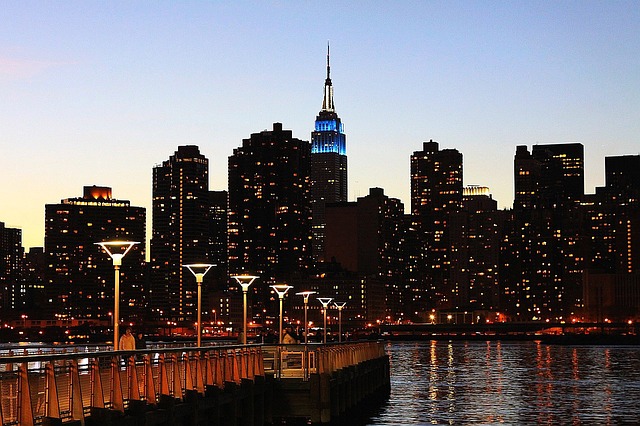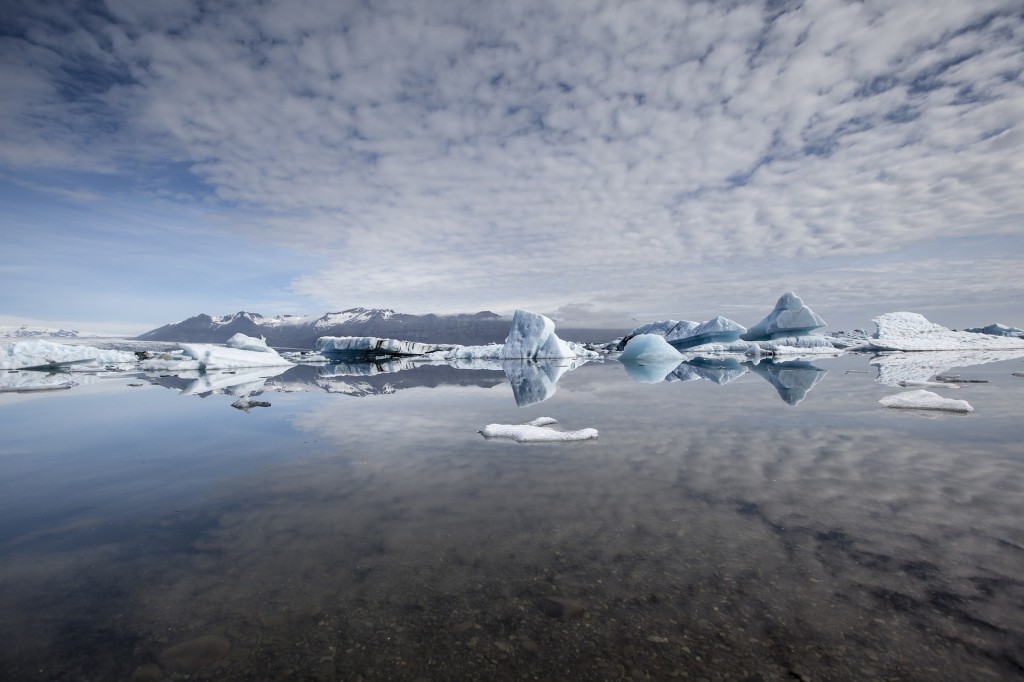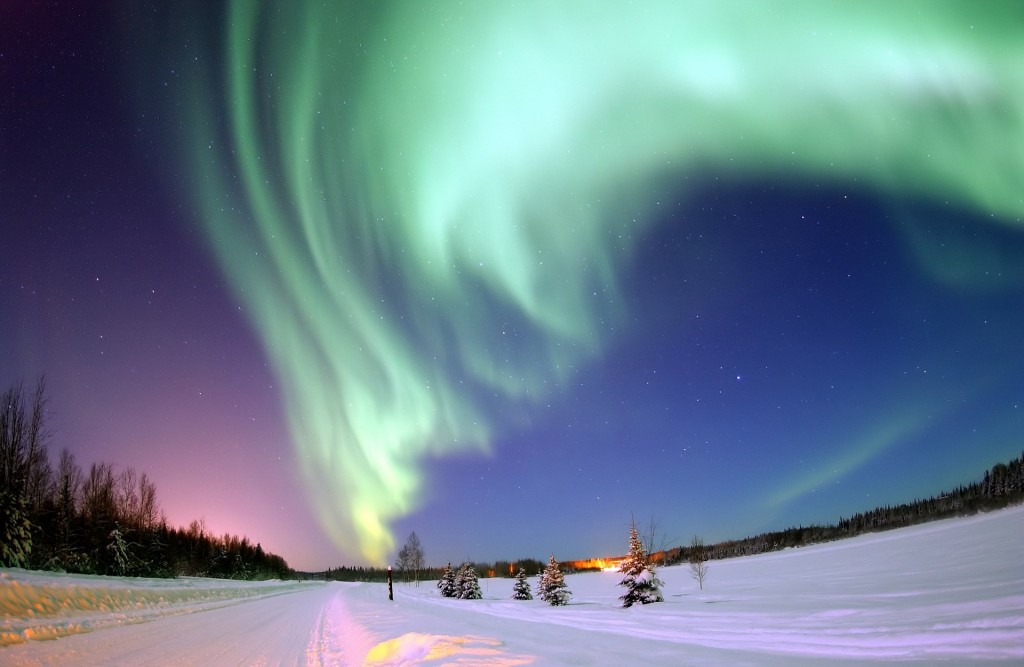Often my work takes me to New York City, where my photography is on display at a gallery in Chelsea. Often, my weeks spent in the bustling city leave me aching for nature and a reprieve from all of the flashing lights and noises.

If you’re one of the millions of residents who calls New York City home, you likely understand the need to occasionally retreat from the rush and noise of Manhattan life. For a rewarding escape from the artificial light pollution of the City That Never Sleeps, pack your bags and pick a destination that allows you to see light as nature intended. Viewing the Northern Lights is a jaw-dropping, other-worldly experience that should be on every adventurer’s bucket list. Here are the top three most convenient destinations for New Yorkers to see the Aurora Borealis:
Reykjavik, Iceland
An increasingly popular spot for star gazers, lagoon lovers, and volcano enthusiasts, the stunning island of Iceland also has some of the world’s best views of the Northern Lights thanks to its dark night skies and close proximity to the North Pole. Flights from JFK are just a short 5 hours, making it easy to escape the City for a long weekend exploring this picturesque slice of Nordic paradise. At the time of writing, one can book a round trip ticket for around $1000, though you may be able to hop on an Iceland Air special for less. For the best chances of viewing the dancing Borealis, most locals recommend coming from September to mid-April, though the darkest months, November to February, may prove more promising. Make sure you bring plenty of layers to bundle up against Iceland’s blustery temperatures or book an Aurora Floating Tour in the Secret Lagoon, a hot spring that stays over 100 degrees year-round. Even if the Northern Lights don’t make an appearance during your stay, there are plenty of other sights to mesmerize and captivate in this decidedly beautiful country.

Nova Scotia, Canada
Canada, eh? Most of our neighbors to the north live in what is known as the Aurora Oval, a region where auroral emissions are more readily visible. The National Oceanic and Atmospheric Association posts forecasts of the Aurora Oval based on the current space weather conditions, making it easier to predict the chances of seeing the Northern Lights on any given night. The closer to the North Pole, the better the odds of seeing these ephemeral, glowing lights, though spectacular sightings have been reported as far south as Halifax, Nova Scotia. Jump aboard a fast two-hour flight from New York to Halifax, then book a car and make your way to the Trout Point Lodge, nestled in the Tobeatic Wilderness Reserve, near Kejimkujik National Park. This remote wilderness area boasts some of the darkest skies in Nova Scotia, making it a prime location to catch the elusive dancing lights of the Aurora. The rustic-chic Trout Point Lodge, has plentiful opportunities for outdoor adventuring, and even has its own resident astronomer to lead guests in star-gazing and occasional aurora borealis sightings.
Lake Superior
The remoteness of this northerly Great Lake makes it prime property for viewing the Northern Lights. Cook County, in the northern fringes of Minnesota, just south of the Canadian border is a popular spot for aurora enthusiasts. The easiest way of getting there is by flying into Minneapolis, just a 2-hour flight, and driving the remaining five or so hours to Cook County. Since the best chances of seeing the lights are in the chillier fall and winter months, you may want to book a room in-town at one of the many small lakefront towns such as Lutsen or Grand Marais, though the surrounding forest offers abundant camping opportunities for the more adventurous. For the best chances of seeing the frequently spotted lights, the local tourism board recommends keeping your eyes focused on the horizon at True North, wearing something warm, and practicing patience.

No matter where you go to seek them, a sighting of the Northern Lights is an other-worldly experience that you won’t soon forget. Pack your bags and get out of the city to see this delightful gift from nature.

